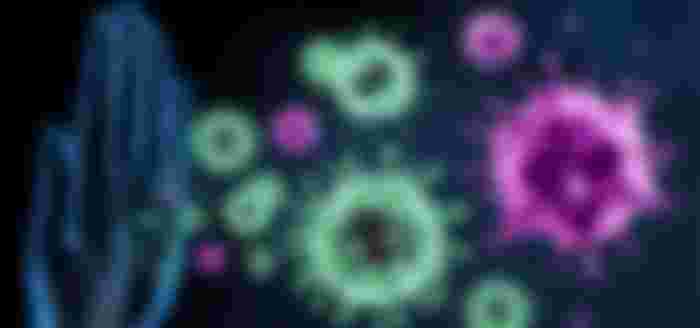
The function of the immune system is to protect the body from all factors that could damage our health. With a severely damaged immune system, no one can survive despite treatment with the most effective antibiotics.
Immune system function. Why is he so important?
The function of the immune system is to protect the organism from all factors that could damage our health. With a severely damaged immune system, no one can survive despite the therapy with the most effective antibiotics. The immune system is activated every time any foreign body or organism is found in the human body. These are most often microorganisms (bacteria, viruses, fungi), as well as pollution particles, or toxins, and we call such factors antigens. There are millions of antigens that can have even slight differences between them, which the immune system recognizes and against which it starts a reaction called the immune response. A very important task of this system is to remember foreign substances and distinguish them from those that belong to the human body.

What does the immune system consist of?
The organs of the immune system are lymph nodes, spleen (located in the upper left part of the abdomen), breast (thymus), tonsils, and adenoids. All of them are interconnected by a system of lymph vessels through which lymph flows - a colorless fluid that contains lymphocytes (a type of white blood cell) that play a major role in the body's immune response. The lymph flows from the blood into the peripheral lymphatic capillaries, which then lead it to the larger lymph vessels, and eventually, the large lymph vessel flows back into the venous system.
Lymph nodes
On its way from the lymphatic capillaries to the venous circulation, the lymph passes through the lymph nodes that act as filters in which harmful substances are neutralized. The lymph nodes are spherical in shape and consist of lymph tissue. They are located in different places in the human body: under the armpits, on the groin, in the abdomen, chest, on the back of the knee, on the neck, back, and under the jaw. Pea grain sizes are normal, but they increase during infection. This happens due to the accumulation of antibodies, and with the goal of destroying the antigen. Lymph nodes are always enlarged at the site of antigen entry, so for example, lymph nodes in the neck are enlarged in the case of mononucleosis, or in the groin in the case of genitourinary infections. This means that the immune response is strongest at the place of the beginning of the infection, with the aim of preventing its further spread.

Thymus
It is located on the back of the sternum. In this gland, the process of maturation of one type of lymphocytes marked as T lymphocytes takes place.
Spleen
It is located on the upper left side of the abdomen, just below the diaphragm. It has a role similar to lymph nodes, except that it breaks down red blood cells at the end of their life. Tonsils and adenoids
The palatine tonsils are located symmetrically at the bottom of the palate, and on both sides of the pharynx, while the adenoid organs are composed of lymph tissue located in the upper part of the pharynx. The palatine tonsils, adenoids, and lingual tonsils, which are located at the root of the tongue, together form the so-called lymphatic ring, responsible for the defense of the upper respiratory tract and digestive tract. Their task is to keep microorganisms and other harmful particles at the very entrance into the organism, as well as to trigger an immune response in the sense of secreting antibodies. This function is active only in the first years of life.
Lymphocytes
Lymphocytes play the most important role in maintaining human health. It is a type of white blood cell. We distinguish two types of lymphocytes, namely T and B lymphocytes. Each of them has its own task. T lymphocytes have the role of recognizing and distinguishing foreign substances from those that belong to the organism and to destroy them, while B lymphocytes regulate the production of antibodies. Lymphocyte synthesis begins in the bone marrow from progenitor cells that later mature into T lymphocytes in the thymus while B lymphocyte maturation ends in the bone marrow.
Mature T and B lymphocytes then pass into the blood, and from the blood into peripheral lymphatic organs such as lymph nodes, spleen, and others. In the blood and lymphatic organs, they are always present and ready to react to any foreign antigen.

Types of the immune response
There are two types of immunity, and they are innate and acquired immunity.
Innate immunity consists of a number of non-specific defense mechanisms, and they are active even before exposure to an antigen. Innate immunity means, for example, the acidic pH value of the vaginal mucosa in order to prevent the development of pathogenic microorganisms in that area, or the cilia of the ciliary cells of the bronchial mucosa that retain harmful particles and push them out of the body. This type of immunity is present from birth and represents the first line of defense. It acts immediately within 96 hours, and has no immune "memory."
Acquired or specific immunity develops gradually after birth and implies that there is a specific immune response for each antigen. It is highly effective, has an immune "memory", which means that it has the ability to remember every previous contact with a particular antigen, ie to recognize foreign matter even many years after the first contact and to trigger an immune response to destroy it. It has a longer reaction time, from 96 hours and up. Lymphocytes and antibodies are an integral part of acquired immunity. The immune response can be humoral (directed against bacteria) and cellular (against viruses, malignant tumors).
Humoral immune response
It is based on the production of specific antibodies against a specific antigen. Antibodies are substances that are also called immunoglobulins and are secreted by B lymphocytes. After the penetration of the antigen into the body and its recognition, B lymphocytes are transformed into plasma cells that secrete antibodies against one or more antigens that caused the immune reaction. There are five types of antibodies in the body, ie. immunoglobulins (Ig), namely: A, G, M, E, and D. They differ from each other in chemical composition and structure.
IgM and IgD are located on the cell membrane of lymphocytes and represent receptors for antigens. Thanks to them, the antigen is recognized. B lymphocytes then differentiate into plasma cells that secrete specific antibodies. The antibody binds to a foreign antigen, which causes its precipitation, inactivation (in the case of viruses), lysis (erythrocytes), phagocytosis (bacteria).
How do we become immune? In an immune person who has already been in contact with a certain antigen once, the so-called B memory lymphocytes, which are activated by the re-penetration of the same antigen into the body by rapidly multiplying and turning into plasma cells that secrete large amounts of specific antibodies. That is the reason why some diseases, such as smallpox, mumps, etc. get sick only once. B memory lymphocytes and antibodies have the ability to stop the reproduction of pathogens as soon as they enter the body, ie. before the development of disease symptoms.

Cellular immune response
T lymphocytes play a major role. The cellular immune response takes place so that T lymphocytes come into direct contact with the antigen, even without the secretion of antibodies by B lymphocytes. The cellular immune response is important in viral and fungal infections, malignant tumors, organ transplants.
T lymphocytes do not produce antibodies but secrete substances called cytokines. These molecules act as mediators between cells and destroy damaged cells, or stimulate other cells of the immune system to respond immune.
T lymphocytes are responsible for recognizing foreign antigens in the body. On their surface there are receptors, similar in structure to those on B lymphocytes, but not identical. These receptors, even in the phase of embryonic development, acquire the ability to recognize what does not belong to the organism, as well as to recognize the altered cells of the organism itself. Histocompatible antigens are found on all cells in our body, even on the lymphocytes themselves. If these antigens change, which usually happens after a viral infection or the appearance of malignant cells, or if cells with a different antigen are found in the body (as in transplantation), T lymphocytes are activated and destroy such cells, while healthy ones are spared.
Autoimmune diseases occur when the immune system loses the ability of immune memory and begins to recognize the cells of its own organism as foreign and to attack and destroy them.
Immunological compromise is a term that means the reduced ability of the organism, ie. immune system to provide an adequate response to the invasion of pathogenic microorganisms and other harmful substances. It most often occurs in people who have been suffering from some chronic diseases for a long time or are infected with the HIV virus.





Our health goes through the mouth, how we eat is very important, and physical activity is important for maintaining the immune system.